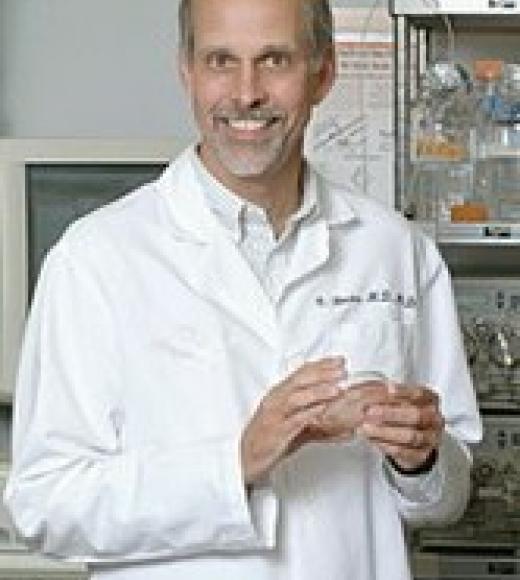
Position Title
Professor, Department of Micorbiology & Immunology
Education:
- University of Maryland B.A. Biology
- University of Maryland M.D. Medicine
- University of Maryland Ph.D. Biochemistry
Dr. Bevin's laboratory is interested in innate immunity of mucosal tissues and we are focused on a newly discovered component of host defense: antimicrobial peptides. Antimicrobial peptides are endogenous antibiotics, isolated from diverse species throughout the plant and animal kingdoms. They represent an evolutionary ancient mechanism of host defense. These peptides have a broad-spectrum of antimicrobial activity that includes bacteria, fungi and certain viruses. Their antimicrobial activity is attributed to their ability to selectively disrupt microbial membrane functions at micromolar concentrations. Additional biological activities of many antimicrobial peptides (for example, chemotaxis) are a result of high affinity interactions with various cell surface receptors. Defensins are the major class of antimicrobial peptides in humans and other mammals.
Recent work from Dr. Bevin'slaboratory has discovered that certain defensins are expressed in abundance by epithelial cells at wet mucosal surface. The long-range goal of our research is to understand the specific role that these epithelial antimicrobial peptides play in mucosal host defense and to characterize the pathophysiology that characterizes altered expression of these peptides. Although the epithelia of mammalian mucosal tissues were once regarded as a primarily a passive barrier to noxious agents, our recent work supports a model: Induction of antimicrobial peptide expression by bacterial and pro-inflammatory stimuli constitutes part of an active, early host defense response of challenged epithelial cells. Our current collaborative studies include: (i) characterizing the primary structure and biological activity of the tissue forms defensins, (ii) defining the key regulatory steps for the expression of these molecules, (iii) exploring potential mechanisms of therapeutic modulation of these systems. The investigations include biochemical and molecular biological approaches and analysis of transgenic models.
Research Interests:
- Characterization of Antimicrobial Peptides from Human and Rodent Mucosal Tissues
- Study of the Regulated Expression and Processing of Antimicrobial Peptides
- In vivo models of defensin activity
- Altered Expression of Antimicrobial Peptides in Inflammatory Bowel Disease and Otitis Media